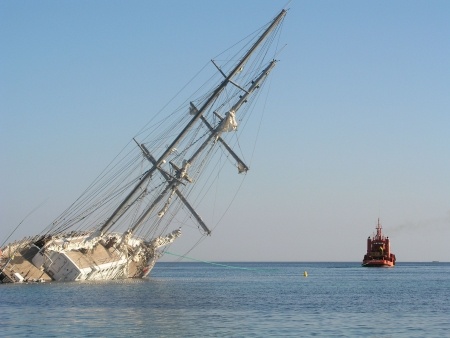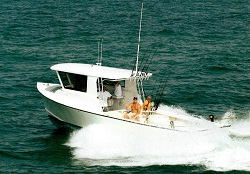Maritime – Admiralty – Marine Warranty

Overview of Maritime – Admiralty – Marine Law
Claims arising out of defective vessels or equipment generally fall into two categories:
1) Products liability claims for injury to persons or property arising out of a dangerous or defective vessel or piece of the vessel’s equipment
2) Contractual and implied-in-law warranty claims against the manufacturer and seller of a vessel or equipment which is defective.
Although contracts for the sale of vessels are not within the admiralty jurisdiction, the doctrines of warranty and strict products liability arising from defective boats and equipment are recognized in admiralty and maritime law. There are State statutory and common law remedies for those injured or who have suffered damage to property from defective boats or equipment.
Legal recovery for those damaged or injured by defective boats and equipment may be provided by theories of negligence, strict liability, or warranty, depending upon whether there is property damage, personal injury, or both. The Magnuson-Moss Warranty Act also covers pleasure boats and commercial vessels often come with a manufacturer’s written warranty.
Defectively designed or manufactured boats or equipment may constitute a breach of express or implied warranty. If the defect causes harm to other property or causes personal injury or death, courts may award damages based upon the negligence of the manufacturer or distributor or based upon strict liability in tort.
Of course, as with other warranties, within limits of the applicable law, maritime/admiralty/marine warranties may be limited or disclaimed.
The Evolution of Admiralty Law Warranties
It is now well established that a products liability claim can be asserted in admiralty under the general maritime law (East River S.S. Corp. v. Transamerica De laval, 476 U.S. 858, 106 S. Ct. 2295, 1986). In order for a products liability claim to be cognizable in admiralty, it must pass the two part test enunciated in Executive Jet Aviation Inc. v. Cleveland, 409 U.S. 249, 93 S. Ct. 493 (1972). The requirements are:
1) The tort must occur on navigable waters
2) There must be a nexus with traditional maritime activity.
As the Supreme Court recognized in East River, strict products liability was created because courts felt that contractual breach of warranty actions (expressed or implied) were inadequate to deal with consumer transactions in modern society. This concern ultimately led to the formulation of the Restatement (2nd) of Torts §402A, which provides that a plaintiff in a products liability case must prove:
1) That the defendant manufactured or sold the product
2) That the product was defective
3) That the defect caused injury to the plaintiff
4) That the product was defective when it left the custody of the defendant.
Under §402A of the Restatement, a product is considered defective when it is unreasonably dangerous in normal use. A product can be defective in any of four ways:
1) Design
2) Construction
3) Composition
4) Inadequate warning.
The concept of “normal use” in the context of products liability cases has been broadly defined. For example, in Vickers v. Chiles Drilling Co., 822 F. 2d 535 (5th Cir. 1987), the Court defined “normal use” to include all reasonably foreseeable uses of a product including foreseeable misuse. The Court adopted this definition because it was found to be a “virtually universal rule in all states.”
Magnuson-Moss Warranty Act Claims
Generally speaking, the law considers pleasure boats, even luxury yachts, to be consumer goods. As a result, the owners or “consumers” of pleasure boats are offered protection under the Magnusson-Moss Warranty Act. This law was enacted by Congress to make warranties on consumer products understandable, to protect consumers from warranties that are deceptive, and to make warranties enforceable by law. If a vessel comes with a warranty, that warranty must comply with the Magnusson-Moss Act. Our law firm offers the knowledge and experience to skillfully assert the rights of pleasure boat owners under this Act.
State Law
All states in the United States have laws enacted to protect to protect consumers. The Common Law also protects consumers. However, there is a complex interaction among Admiralty Law, the Magnuson-Moss Warranty Act and State Law. An experienced maritime attorney is best suited to advise you if you have purchased a defective boat or marine equipment, or someone is claiming that you sold him a defective boat or equipment.




